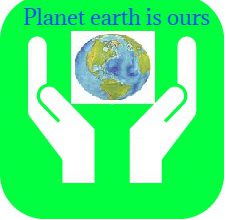Biodiversity
Biodiversity simply refers to species and organisms that all work together in ecosystems, to maintain balance and support life. The different kinds of life including plants, animals, and microorganisms such as bacteria that make up our natural world.
Capsule wardrobe
A capsule wardrobe is a collection of clothing composed of easily interchangeable items that have been thoughtfully curated, in order to maximize the number of outfits that you can create. Simply put, a capsule wardrobe allows you to create different looks with only a small selection of clothes.
Capture rate:
This is the percentage of a recyclable material collected (placed aside for recycling), out of the total amount of that particular material generated. The capture rate is an excellent indicator of how well a building’s recycling program is working.
Capture rate = Total recycling /Total recycling + Recycling in waste*100
Cart (as it relates to waste):
A bin with wheels usually made out of plastic for storing materials.
Carbon footprint
A carbon footprint is the amount of greenhouse gas emissions released into the atmosphere. This is usually as a result of activities by individuals, organizations, services, products or places.
Circular fashion:
Circular fashion promotes a circular economy, where products are designed to be recycled, repaired, or upcycled at the end of their life.
Contamination:
When non- recyclables are mixed with materials in a recycling stream.
Contamination rate:
The percentage of material in a recycling bin that ‘normally’ shouldn’t be there as that material is not acceptable in that program. A high contamination rate means all the materials in that particular recycling bin could be deemed ‘not recyclable’. A high level of contamination makes processing of materials difficult. Hence such materials are re-channeled for disposal.
Diversion:
A system of redirecting materials from landfill by reusing, recycling or recovery.
Diversion Rate:
An expression of how much waste is actually prevented from ending up in landfill is referred to as Diversion rate.
Diversion rate = Total recycling/Total recycling +Total waste*100
Ecosystem:
An ecosystem is a geographic area where animals, plants, and other organisms, as well as weather and landscapes, work together to form a bubble of life.
Fast fashion
Fast fashion is a term used to describe a business model within the fashion industry that prioritizes quick production and turnover of trendy clothing to meet consumer demand for the latest styles.
Material Destination:
A place(s) where materials are transported. A destination can be a transfer station, a sorting facility (material recovery facility), a factory for processing materials or a landfill site.
Landfill:
A site for solid waste disposal whereby waste is buried in layers and covered by soil.
Microplastic: Extremely small pieces of plastic; plastic that does not fully degrade.
Non-recyclable materials:
Materials that are deemed ‘not recyclable’ such as soiled paper towels, broken rubber bands.
Pre-Loved Clothing:
The word preloved, means the item was loved by someone before being offered for sale. Simply put, a pre-loved item is not a new item and has been owned and used before.
Recycling:
This is a process whereby waste materials are converted new materials. Materials that would have been discarded as waste are processed into new products.
Recycling stream:
Materials that are placed aside for recycling. These include recyclable materials such as paper, cans/glass/plastic, cardboard. Depending on the program(s) available organics, scrap metal, electronic waste and other recyclables may also be collected.
3Rs:
A term that denotes Reduce Reuse Recycle. Commonly referred to as the 3Rs.
Regulation:
A law or rule made by an authority.
Tencel:
A brand name for a set of fibers called lyocell and modal. These set of fibers are known for feeling super soft and are widely used in sustainable fashion.
Waste:
Materials including recyclables and trash generated as a result of different activities.
Waste to Energy: is one of the processes of diverting non-recyclable waste from landfill. This involves conversion of waste to energy usually in the form of electricity, heat and fuel.
Wetland:
An area of land that is either covered with water or saturated with water. Plants, called hydrophytes, define wetland ecosystems.
